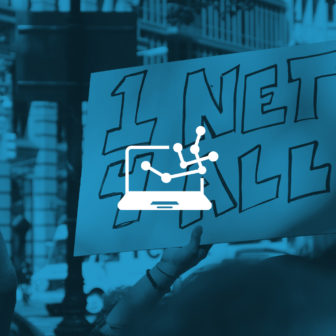Tag: US

Infographic: Four Reasons Why the White House Cybersecurity Proposals Aren’t Enough
Access released an infographic detailing our main concerns about the White House’s proposed cyber security reforms.

Much Cyber. Very Security. The devil is in the details with Obama’s new cybersecurity proposals.
This week the White House announced plans to release a new legislative proposal aimed at providing notice to victims of corporate data breaches. While these proposals show the White House’s prioritizing data security, it is not yet clear that Personal Data Notification and Protection Act will actually lead to improved security or provide adequate protection for users’ privacy.

Episode III: Revenge of the CISPA
Today, Dutch Ruppersberger (D-MD) re-introduced the Cyber Information Sharing and Protection Act (“CISPA”), a bill that has passed the House of Representatives twice previously, both in 2011 and 2013, and subsequently also twice faced a veto threat from the Administration. We once again urge Congress to reject CISPA. Instead, Congress should pass the Secure Data Act. Unlike CIPSA, it would actually protect user privacy and increase data security.

Sony Pictures hack shows weak security but no reason to violate privacy, start a war
Sony Pictures Entertainment was recently pwned by a group calling themselves the Guardians of Peace, ostensibly acting under the guidance of the North Korean government (though this is subject to debate). It was bad that the hackers took advantage of a culture of bad cybersecurity practice at Sony. Thanks to a bevy of embarrassing cybersecurity practices, worse cybersecurity discourse, and a growing culture of fear in Washington (and around the world), there is little doubt that this incident will be spun to support poorly-drafted laws that infringe upon user rights and do nothing to increase security. We shouldn’t, and we don’t, have to sacrifice privacy to achieve better network security. The U.S. Congress needs to reject any legislation that would attack our privacy, such as an invasive information sharing regime.

At final hour, Congress passes reasonable cybersecurity legislation
In spite of a feeble legislative term, including the particularly devastating failure of surveillance reform, the 113th U.S. Congress pushed through four positive last-minute cybersecurity bills over the past two days. President Obama is soon expected to sign these bills into law. The new cyber measures increase government transparency and Congressional oversight of federal cybersecurity efforts, while expanding coordination between civilian agencies. Access supports the efforts of Congress to pass cybersecurity legislation and hopes the momentum will lead to more significant legislation for the 114th Congress.
One step forward, one step back: U.S. Senate introduces crypto backdoor bill while House removes fix
Today, U.S. Senator Ron Wyden introduced a bill to prohibit the government from mandating backdoors in hardware and software technologies. The legislation prohibits any federal agency from intentionally weakening consumer encryption standards. As we’ve previously said, strong encryption standards and device security are critical to the privacy of individual users. Access commends Senator Wyden and urges the Senate to quickly pass the Secure Data Act.

Wishing “Bon voyage” to PNR agreements in Europe
Yesterday, the European Parliament voted by a large majority to refer the EU-Canada passenger name record agreement (PNR) to the Court of Justice of the EU (CJEU) to assess its compliance with the EU Charter of Fundamental Rights. Ever since CJEU’s landmark ruling invalidating the Data Retention Directive last April, a number of ongoing and proposed agreements that include data retention schemes have been put under the microscope. Yesterday’s vote is the first of many steps to ending indiscriminate and unlawful surveillance programmes in the EU.

Obama Must Act on His Promise to Reform the NSA
The Senate will soon vote on whether pass the USA Freedom Act, a bill that would end one of the worst abuses of the NSA’s surveillance authority.

The U.S. must respect the rights of all users
The U.S. government believes that those who are not in the U.S. or who are not U.S. citizens or permanent residents — “non-U.S. persons” in official parlance — have few to no privacy rights to protect them from U.S. surveillance. Access provides four policy recommendations that would start the U.S. on a course towards respecting the human rights of all people.

Who will win the race for net neutrality?
Europe and the U.S. are nearing the finish line in a neck-and-neck race to enshrine net neutrality into law, and support the rights of some 800 million users.